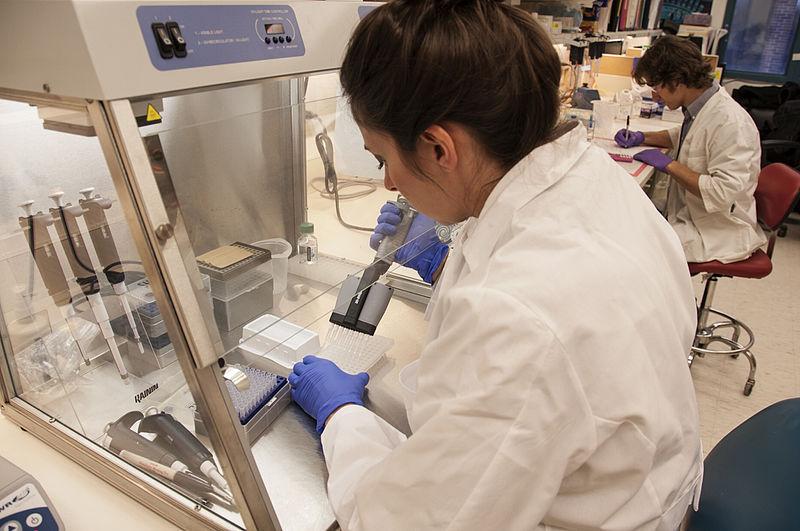Dr. Eugene Gu, a 30-year-old surgical resident at Vanderbilt University, conducts research that involves the use of unused fetal tissues to combat heart and kidney disease. He has been making major breakthroughs in the field, and his intentions are nothing more than eliminating the waiting list for organ donations.
Gu has been conducting research over the last few years, and in 2014 he even became the first person to implant unused human fetal tissues into a rat, which went on to maintain a healthy life.
It is important to realize just how serious these breakthroughs in medical science are. With work such as Gu’s making great leaps, it is becoming more and more possible to treat some of the serious birth defects and illnesses that plague humanity today.
The catch here, however, is that all of this young doctor’s work has essentially been halted. The Select Investigative Panel on Infant Lives, a Republican House committee, recently issued Gu a subpoena, demanding access to the financial transactions of Ganogen, Gu’s startup organization, as well as access to his emails, names of those who worked for him and equipment that was purchased for the intent of his research.
This panel’s members claim they are protecting the integrity of science and research, when in truth they are doing nothing but making an attempt push their own morals on a field they have no understanding of.
Apparently, the major factor that set the Selective Investigative Panel on Infant Lives against Gu was his interactions with the company StemExpress.
StemExpress is an organization which donates tissues collected from clinics that offer abortion services, redistributing them to scientists partaking in biomedical research. I can’t stress the word “donated” enough here — these tissues are not stolen in any way.
StemExpress became the subject of some illegally recorded videos released in 2015 that claimed to show operatives of the company selling fetal tissues.
That video, which has since been debunked, is still taken as truth by far too many people today — a small group of which have now assumed the name of the Select Investigative Panel on Infant Lives.
Gu did business with StemExpress on several different occasions, and, according to the panel, this is why his organization, as well as several others, have been issued subpoenas.
Yet, the fact of the matter is this: the panel, which claims to be protecting the voice of those who cannot speak for themselves, can voice its opinions on abortion all it wants. In fact, its members can do whatever they please so long as the law lets them.
What they should not do, however, is undermine the progress of medical science. They have this strange idea that it is more just to protect the integrity of unused fetal tissues, and simply seem to forget that this research is for the sole purpose of increasing the quality of life for the living and for those that are destined to do so.
The panel’s members question the morals of these biomedical researchers and organizations that help them, but what of theirs? What of people in need of kidneys, and what of children born with heart defects? If we can help them in any way, wouldn’t we do it?
Gu and scientists like him are not butchers. They do not vivisect infants and place their beating hearts into some Frankenstein’s monster of a rat. They simply use what would have to be thrown out anyway. They are not murderers but merely humble researchers seeking to make our lives and our children’s lives easier.
Argue all you want over what rights you think a fetus should have, but know this is not about that. There is no question here on the right to life. It is a given that the absence of life is an essential part of this process.
This is a discussion over the right to tissues — bundles of cells that have just as much potential of belonging to a rat as they do to a chimpanzee as they do to a human.
When something is unused, something that is itself not human, why not re-service it?
We turn retired ships into artificial reefs. We turn locks of hair into heirlooms. We sell the houses of our deceased grandparents. Yet, for some reason, we have no moral qualms with this. Tissues are not humans, just as a wheel is not a car nor a single wing an airplane. To say that the principle of something belonging to something is what justifies moral questioning means you should stop sitting at that table that your great grandfather made for his own family — since reusing things is such a crime.
Gu merely seeks to make life easier. He looks to those people, for whom the luxury of working hearts or kidneys are absent, and thinks of how he can help them. He doesn’t kill anyone, slice any screaming hostage up, create any mutants, buy black market organs or even so much as lay a finger on a living human with the intent of harming them. He is a doctor of medicine and lives as a doctor should: with the betterment of the ill as his sole wish.
Do not for one second mistake him as anything else. He merely uses that which would see no use otherwise.
Jordan Marcell is a 19-year-old anthropology and studio photography sophomore from Geismar, Louisiana.
Opinion: Stem cell researchers not deserving of harsh treatment
November 21, 2016
Jessica Lo Surdo, M.S. (foreground), an FDA staff scientist, studies chain reactions in stem cells in an FDA laboratory on the National Institutes of Health campus in Bethesda, Md. Ross Marklein, Ph.D., a post-doctoral research fellow (background), records findings.





